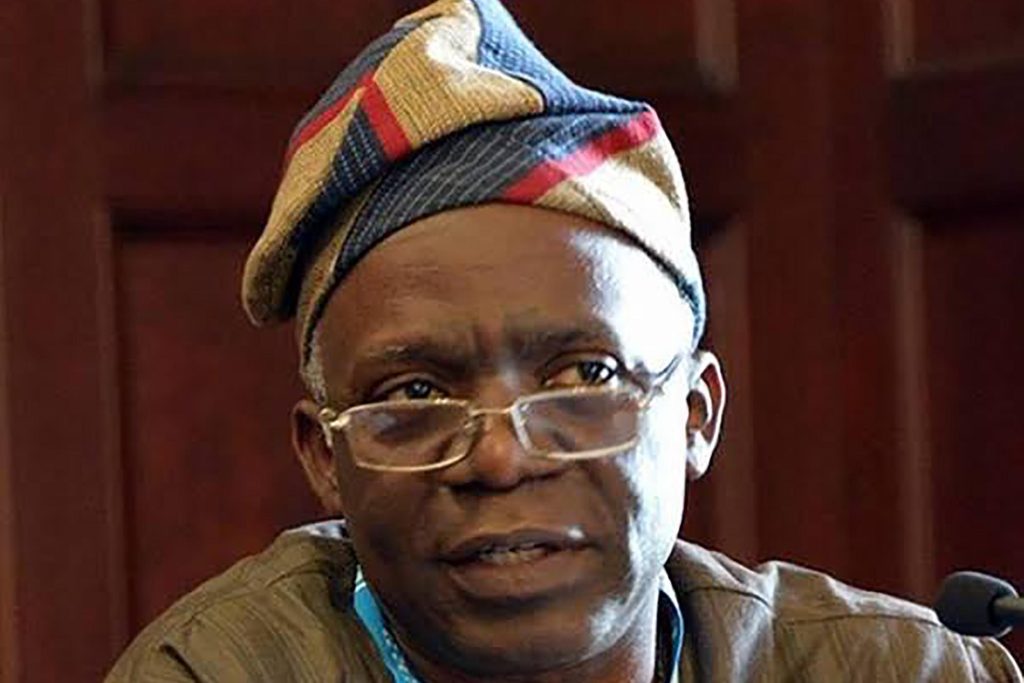The constitution, according to Nigerian lawyer Femi Falana (SAN), mandates that the executive, legislative, and judicial branches of government be independent of one another. Each branch also has the right to financial autonomy.

In an appearance on Soni Irabor Live on News Central TV on Wednesday, the human rights activist claimed that the executive has prevented the judiciary from operating independently since 1999.
The Nigerian judicial council at the federal level and the heads of state courts at the state level would receive the funds accumulated for the judiciary, according to the Constitution.
“Similar to the legislature’s budget, the executive uses consolidated revenue funds to fund the judiciary, which is shown in the first line chart to ensure its independence. The same is true for the courts, but they have been thwarted by the executive.
“In at least four cases, the federal high court has held that the judiciary has the right to financial autonomy and independence but that the applicable constitutional provisions are being violated in an environment of impunity. In the current political system, for example, when a new government is formed following an election, the legislature and the executive branch purchase cars for the ministers and lawmakers.
“However, when it comes to the judiciary’s time, governors typically gather judges to come and pick up car keys. After eight or 10 years, those vehicles are occasionally replaced. You put them together if you want to offer judges residences,” he remarked.
In response to a question about why the judiciary has not insisted on adhering to the constitution, Falana alluded to the frequent strikes by judicial employees and the bar’s persistent demands that the judiciary be granted financial autonomy.
“The 2023 constitutional amendment reaffirmed the judiciary’s and legislature’s independence, even at the state level, but nothing was done about it.
“With effect from the 2025 appropriation or budget, we should make sure that the constitutional provisions about judicial independence are implemented in the interest of political stability following the constitution.”
Falana also spoke about the rule of law in Nigeria and said the rule of law is simply the ruling by law; as the government is governed by the law, it is expected to do so. Put differently, under the rule of law, there will be equality before the law, the law will be certain, you can predict the law, you can request an amendment if there are issues with any part of it, and you have to abide by the court’s rulings, and you can file an appeal if you’re not happy with the court’s decision.
“The rule of law in a capitalist society is established by the ruling class, and anarchy and confusion will reign when there is a group of individuals in authority who generally think they can act above the law.”
He claims that because Nigeria had a colonial government for roughly a century, our society is neocolonial. The law and the means of oppression remained unchanged after the British colonial government ceded control to the native ruling class in 1960. In contrast, the British colonial system had ordinances.
“The rule became neocolonial, a new kind of colonialism. When our leaders won power in 1960 and simply converted ordinances to acts of parliament, just as they had done with decrees. To steal money from our people, collect taxes, crowd our people whenever they protested, and kill many of them, the British, for example, established the police and military.”
When discussing what Nigerians did after colonialism ended, Falana said that “they merely kept the operational structures—police, military, and other security agencies—without demilitarising them or providing them with a new ideology.
“They believed that even though the white men had left, they had chosen to defend the same interests, namely the interests of the ruling class. When the public demonstrated, calling for better governance and an end to police brutality, the police would suppress them. If they were unable to handle the protests, they would dispatch the army to kill the demonstrators.”
He continued by saying, “We defend people who are accused of treason, treasonable felonies, or protesting against bad governance, and we challenge the state for criminalising protests, which are constitutionally guaranteed: the right to protest, the right to assemble, the right to freedom of expression, and we have court decisions to the effect that Nigerians have the right to protest.
“The police are required to provide sufficient security during protests under the current law, Section 83(4) of the Police Establishment Act 2020.”


